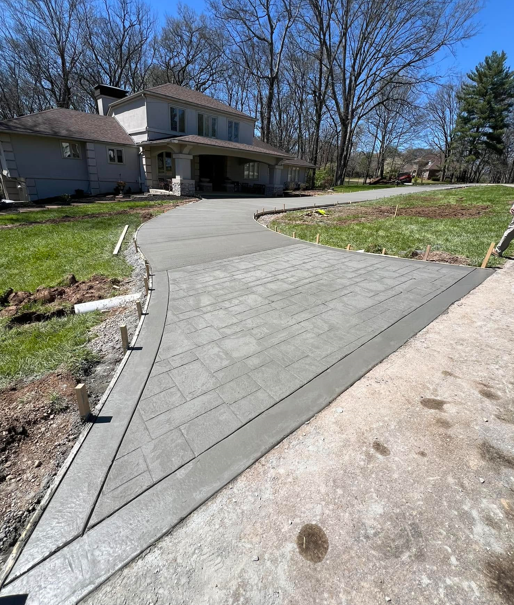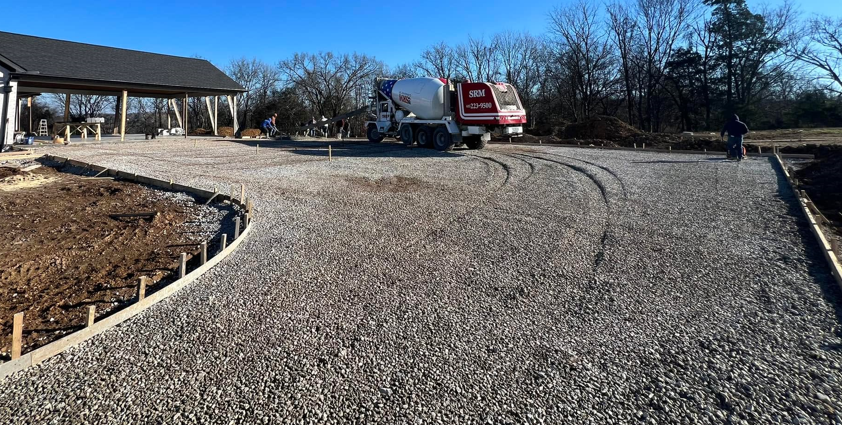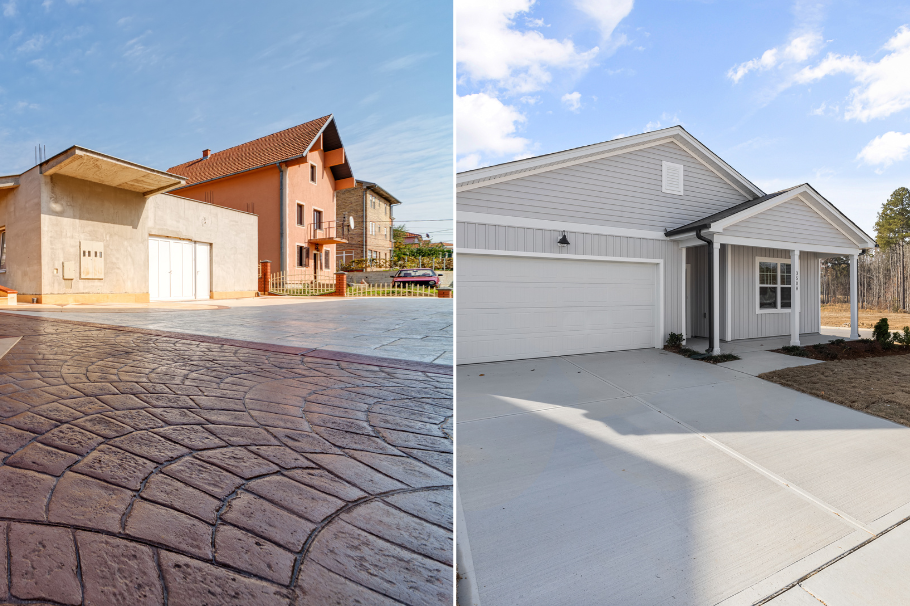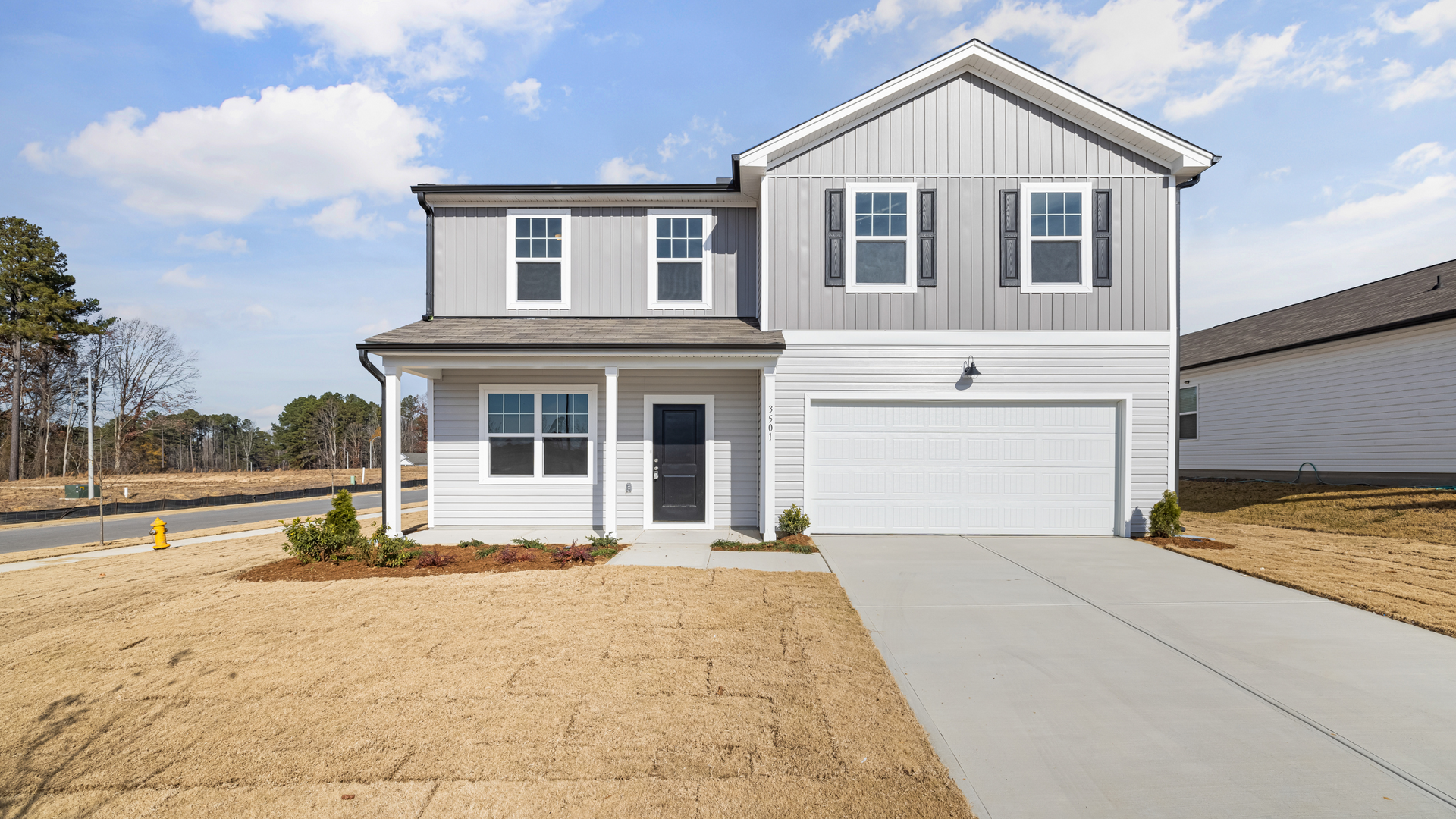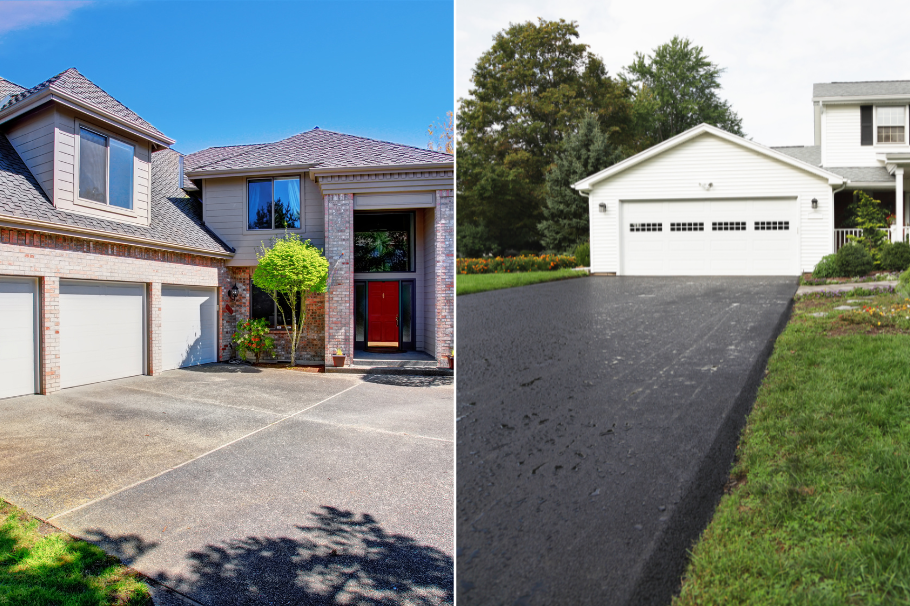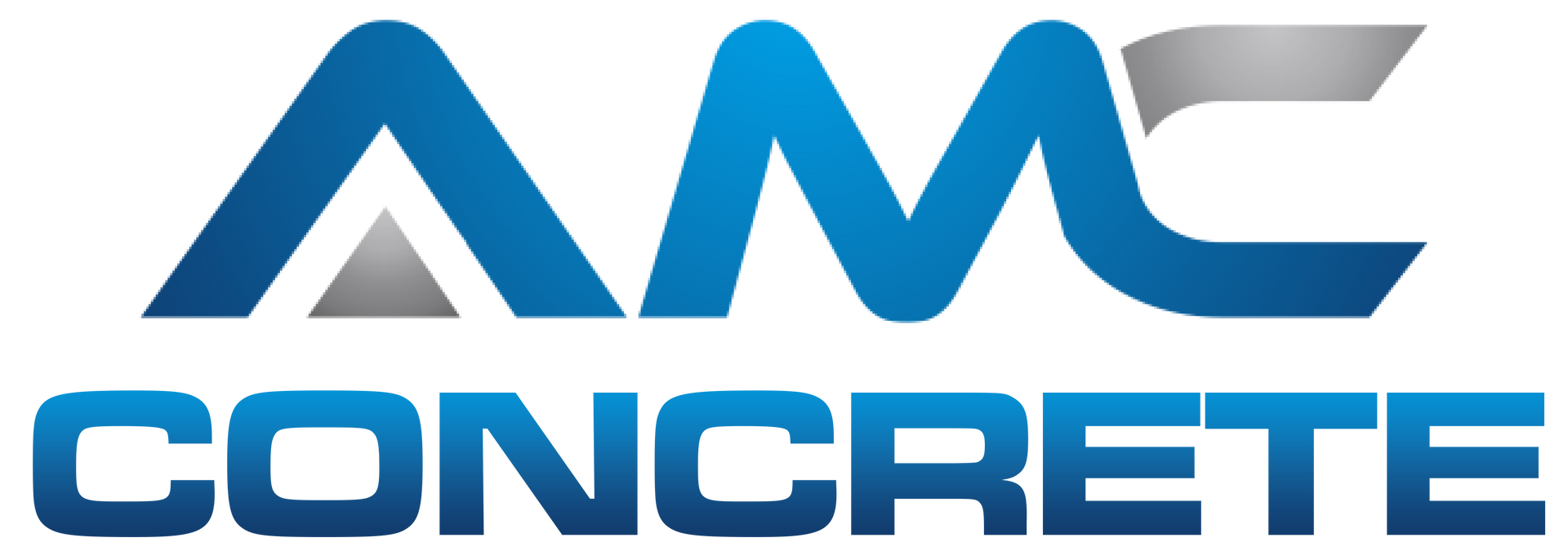How to Maintain Your Concrete Driveway
A concrete driveway isn’t just a functional necessity. It also contributes to the aesthetic appeal of your property, enhancing its value. Hence, maintaining your driveway is of utmost importance. A well-kept driveway not only leaves a good impression but also reduces your long-term repair costs. Concrete driveways, in particular, are known for their longevity and durability. They can last up to 30 years or even more with proper care. Concrete is an inherently strong material, resistant to most types of wear and tear. It can withstand heavy loads, extreme temperature fluctuations, and even the harshest weather conditions. However, this does not make it invincible. Over time, even a concrete driveway can show signs of wear like cracks, stains, and discoloration.
Maintaining a
concrete driveway involves several steps. This starts with regular cleaning to prevent the accumulation of dirt, debris, and stains. It also involves timely sealing to protect the surface from water damage, UV rays, and chemical exposure. Finally, it includes prompt repairs in case of any visible damage to prevent further deterioration. In the following sections, we will delve into the details of each of these steps, providing you with a comprehensive guide on how to maintain your concrete driveway.
Understanding Your Concrete Driveway
Composition of Concrete Driveways
Concrete driveways are primarily composed of cement, water, and aggregates such as sand or gravel. These materials combine to create a durable and long-lasting surface that can withstand heavy loads and traffic. However, like any building material, concrete is not invincible, and its condition can be significantly affected by various environmental factors.
Effects of Weather on Concrete
One critical aspect to consider is the impact of different weather conditions. Concrete is porous, which means it can absorb water. In cold climates, this can be problematic as the water within the concrete can freeze, causing it to expand and create cracks. Similarly, in hot climates, the sun can cause the concrete to expand and contract, leading to surface flaking or scaling. Excessive rain can also wash away the protective layer on your driveway, making it more susceptible to damage.
Common Signs of Wear and Tear
There are several common signs of wear and tear that you should be aware of. Small cracks are usually the first sign, which can eventually grow and cause significant damage if not addressed promptly. Discoloration is another common symptom, usually resulting from exposure to harsh weather conditions, chemicals, or stains. Potholes are also a clear indication that your driveway needs attention, as they result from water seeping into the pavement and eroding the ground beneath.
Routine Cleaning
Importance of Regular Cleaning
The keystone of maintaining your concrete driveway lies in routine cleaning, a habit that is as vital as it is often overlooked. Regular cleaning not only helps keep your driveway aesthetically pleasing but also plays a pivotal role in prolonging its lifespan. Dirt, debris, and stains can seep into the porous surface of the concrete over time, causing damage and reducing the overall durability of the driveway.
Recommended Cleaning Frequency
The frequency of cleaning your driveway depends largely on its usage and exposure to the elements. A thorough clean every quarter should suffice for most driveways. However, in cases of heavy usage or exposure to harsh weather, monthly cleaning might be more appropriate to prevent long-term deterioration.
Effective Cleaning Methods
Choosing the right tools and solutions for cleaning your concrete driveway can make the task easier and more effective. A high-pressure washer can be extremely effective in removing stubborn dirt and stains. When selecting a cleaning solution, opt for a phosphate-free cleaner to avoid harming the surrounding environment. Start by removing loose debris with a broom, then apply the cleaning solution and allow it to soak into any stains. Use a high-pressure washer to rinse the driveway thoroughly. For persistent stains, a stiff-bristled brush can be used before a final rinse and complete drying.
Sealing Your Driveway
Benefits of Sealing
Following a routine cleaning schedule is an excellent measure to maintain the longevity and aesthetic appeal of your concrete driveway. However, to add an extra layer of protection and prevent deterioration, sealing your driveway is a crucial step. Sealants provide a protective layer on the surface, acting as a barrier against harmful elements such as water, oil, and UV rays. By effectively blocking these elements, sealants help mitigate the degradation of concrete and extend its lifespan.
Choosing the Right Sealant
Selecting the appropriate sealant during your driveway installation in Columbia, TN is essential. Various types of concrete sealants are available, each with different properties and purposes. Penetrating sealers seep into the concrete to block moisture and deicing chemicals, making them ideal for freeze-thaw cycles. Acrylic resin sealers, on the other hand, offer protection against water and chloride intrusion while providing a high-gloss finish. Researching or consulting a professional can help determine the best type of sealer for your specific needs.
Application and Resealing Frequency
Applying a sealer involves several steps. Begin by thoroughly cleaning the driveway, ensuring no dirt or debris remains that could interfere with the sealer’s adhesion. Once the surface is clean and dry, apply the sealer evenly. It is best to apply two thin layers rather than one thick layer for better coverage and protection. After application, allow the sealer to cure for at least 24 hours before using the driveway. The frequency of resealing depends on factors such as the type of sealant used, weather conditions, and driveway traffic. Generally, resealing every two to three years is recommended, though signs of wear or fading may indicate an earlier application is needed.
Repairing Cracks and Holes
Early Detection of Damage
Following the sealing of your driveway, it is crucial to monitor and address any subsequent issues. One common problem is the development of cracks and holes. Identifying these early can be key to maintaining the integrity of your concrete driveway. Regular inspections help detect small cracks, holes, or other signs of wear and tear before they lead to costly repairs.
DIY Repair Methods
There are several do-it-yourself repair methods available for minor damages. For small cracks, concrete repair caulk can be used. Cleaning the affected area, applying the caulk, and smoothing it out with a putty knife ensures a proper fix. For larger cracks or holes, a concrete patching compound is required. The process is similar, but care must be taken to fill the hole before smoothing the surface.
When to Seek Professional Help
Not all damages can be fixed with a simple DIY approach. If the driveway exhibits extensive damage, such as deep cracks, significant pitting, or sinking areas, professional repair services may be necessary. Experienced professionals can assess the severity of the damage, provide the best solutions, and ensure the job is done correctly and safely. Additionally, preventive measures can be implemented to maintain the driveway’s condition for longer.
Preventing Damage
Importance of Proper Drainage
In the quest to keep your concrete driveway in top shape, one of the primary considerations is damage prevention. Ensuring a proper drainage system is in place prevents water from pooling and seeping into the concrete. Over time, trapped water can lead to significant structural damage. A slight slope in the driveway allows water to channel away from the surface, preventing erosion and freeze-thaw damage.
Protecting Against Cracks and Chipping
Cracks and chipping are common issues that should be prevented as much as possible. These damages can result from ground movement, heavy loads, and severe weather conditions. Applying a high-quality concrete sealer helps create a protective layer against water, oil, and UV exposure. Regular resealing ensures that this layer remains effective, protecting the surface from premature wear.
Additional Preventive Measures
Beyond sealing, several other preventive measures help maintain the condition of a concrete driveway. Avoiding prolonged parking of heavy vehicles prevents undue stress on the surface. During winter, using a plastic shovel instead of a metal one helps prevent chipping while clearing snow. If small cracks appear, addressing them immediately with a concrete repair caulk or patching compound prevents further deterioration. For more significant issues, professional assistance may be required.
Maintaining the Longevity of Your Driveway
Preventing damage to a concrete driveway involves a combination of proper drainage, routine sealing, and timely repairs. By taking these steps, homeowners can ensure the driveway remains aesthetically pleasing and structurally sound for years to come. Proactive maintenance is key to avoiding costly repairs and extending the overall lifespan of the concrete surface.
Conclusion
In wrapping up this in-depth look at maintaining your concrete driveway, it is clear that several key points stand out. Foremost, damage prevention is the cornerstone of a long-lasting driveway; this includes proper drainage to avoid water damage, regular application of a quality concrete sealer for protection against harmful elements, and prompt addressing of minor damages to prevent escalation. Additionally, the weight of vehicles parked on your driveway and the tools you use for snow removal can significantly impact the driveway’s lifespan.
Neglecting these maintenance measures may appear to save time and money in the short term, but the long-term costs can be substantial. A neglected driveway can result in severe damage that requires costly repairs or even total replacement of the driveway. Moreover, aesthetic appeal matters, and a well-maintained driveway can significantly enhance the curb appeal of your home.
In conclusion, regular maintenance of your concrete driveway should not be viewed as a burdensome chore but rather an important part of home upkeep.
Regular concrete maintenance not only ensures that your driveway stays in excellent condition for a longer period, but it also aids in preventing minor issues from escalating into major, costly repairs. Remember, the longevity and aesthetic appeal of your driveway are directly proportional to the care and effort you invest in its maintenance.
Name, Address, and Phone
AMC Concrete
516 Woods Dr, Columbia, Tennessee, 38401, US
931-281-8528
e.
